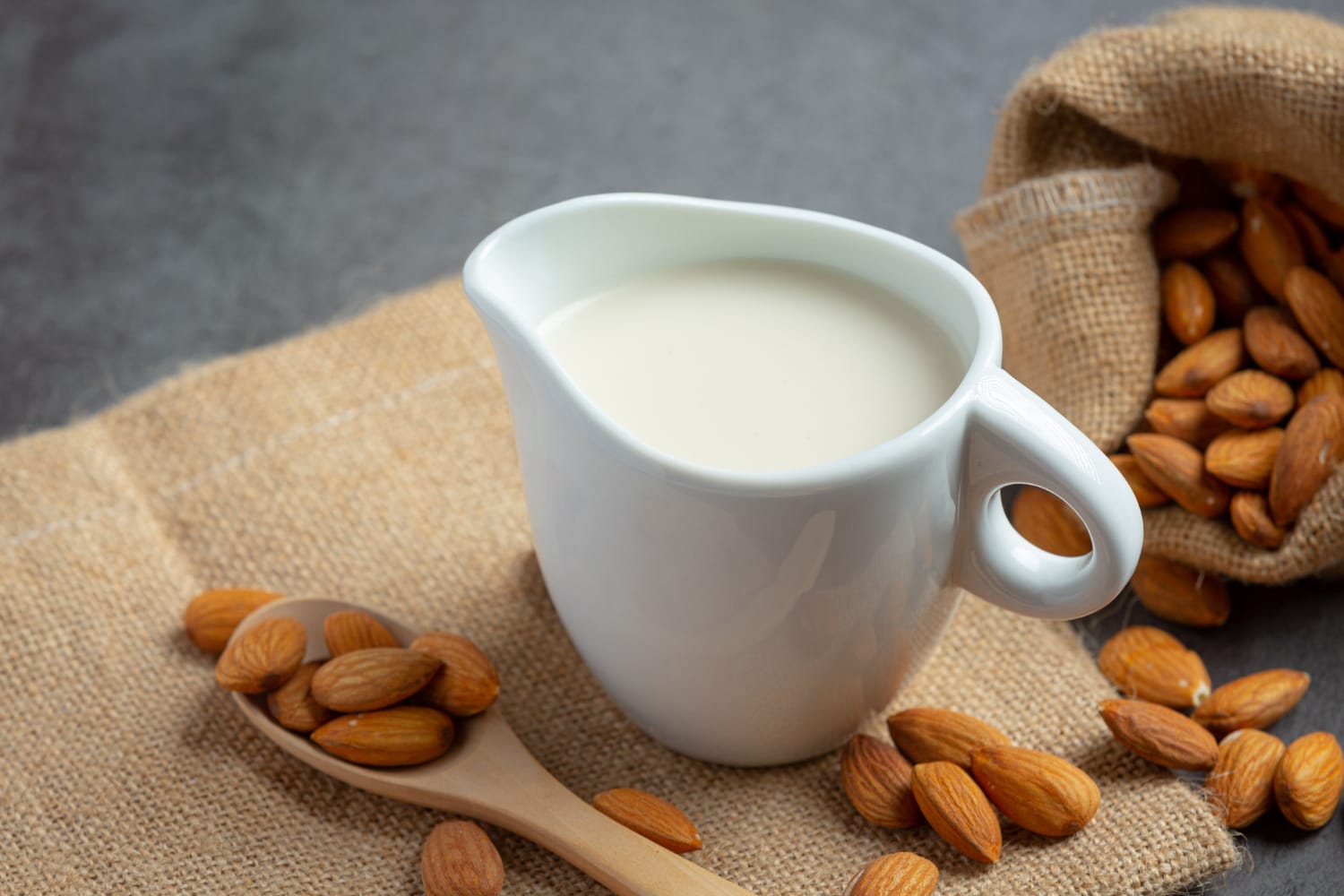Almond milk has gained immense popularity in recent years as a dairy-free alternative to cow’s milk. With its creamy texture and nutty flavor, it has become a staple in many households. However, as with any food or beverage, questions arise about its effects on digestion. One common query is whether almond milk has any impact on bowel movements. In this comprehensive article, we will delve into the science behind almond milk and its potential effects on digestion, addressing common concerns and misconceptions along the way.
What is Almond Milk?
Almond milk is a plant-based beverage made from almonds and water. It is typically produced by blending soaked almonds with water and then straining the mixture to remove the solids, resulting in a smooth, creamy liquid. Often fortified with vitamins and minerals such as calcium and vitamin D, almond milk offers a dairy-free alternative for those with lactose intolerance or other dietary restrictions.
Nutritional Composition of Almond Milk.
Almond milk is known for its rich nutritional profile, offering various vitamins, minerals, and antioxidants. Here’s a breakdown of its key nutritional components:
- Protein: While almonds themselves are a good source of protein, almond milk generally contains less protein than cow’s milk. However, some brands offer fortified versions with added protein.
- Healthy Fats: Almonds are high in monounsaturated fats, which are considered heart-healthy. Almond milk retains some of these fats, although the exact amount may vary depending on the production process.
- Vitamins and Minerals: Many commercially available almond milks are fortified with calcium, vitamin D, vitamin E, and other nutrients to mimic the nutritional profile of cow’s milk.
- Low in Calories: Compared to cow’s milk, almond milk is lower in calories, making it a popular choice for those watching their calorie intake.
Understanding Digestion and Bowel Movements.

Before exploring the relationship between almond milk and bowel movements, it’s essential to understand the digestive process. Digestion begins in the mouth, where enzymes in saliva start breaking down food. The food then travels to the stomach, where it is further digested before passing into the small intestine. Here, nutrients are absorbed into the bloodstream, while undigested material moves into the large intestine, where water is absorbed, and waste products are formed into stool.
Fiber Content in Almond Milk.
One factor that can influence bowel movements is the fiber content of a food or beverage. Fiber, found in plant-based foods, plays a crucial role in digestive health by adding bulk to stool and promoting regularity. While whole almonds are a good source of fiber, almond milk may contain less fiber, especially if it has been strained during the production process. However, some brands offer almond milk with added fiber to boost its digestive benefits.
Hydration and Bowel Movements.
Another factor to consider is hydration. Adequate fluid intake is essential for maintaining regular bowel movements, as water helps soften stool and move waste through the digestive tract. Almond milk, like other beverages, can contribute to overall hydration, but it should not be relied upon as the sole source of fluids. Drinking plenty of water throughout the day is key to supporting healthy digestion.
Personal Experience: We spoke with Sarah Johnson, a health enthusiast who incorporates almond milk into her daily routine. Sarah shared, “I’ve noticed that staying hydrated and including almond milk in my diet has helped me maintain regular bowel movements. It’s part of my overall approach to staying healthy and feeling my best.”
Potential Laxative Effect.
Some individuals may experience a laxative effect when consuming almond milk or other dairy alternatives. This could be due to various factors, including the presence of certain sugars or additives in the beverage. For example, some almond milk products contain carrageenan, a thickening agent that may cause gastrointestinal discomfort in sensitive individuals. Additionally, almond milk sweetened with sugar alcohols like erythritol or xylitol may have a laxative effect in some people.
Scientific Evidence.
Several studies have investigated the effects of almond consumption on digestion and bowel habits. While most research has focused on whole almonds rather than almond milk specifically, the findings suggest that almonds may have beneficial effects on gastrointestinal health. A study published in the European Journal of Clinical Nutrition found that almond consumption increased stool frequency and improved overall bowel habits in healthy adults.(1)
Frequently Asked Questions.
While almond milk is unlikely to cause constipation on its own, inadequate fiber intake or dehydration may contribute to digestive issues. It’s essential to consume a balanced diet and stay hydrated to support regular bowel movements.
Yes, almond milk is a dairy-free alternative that is suitable for individuals with lactose intolerance or milk allergies. However, it’s essential to choose unsweetened varieties to avoid added sugars and excess calories.
There is no one-size-fits-all answer to this question, as individual needs vary. It’s best to consume almond milk in moderation as part of a balanced diet that includes a variety of nutrient-rich foods.
Bottom Line.
In conclusion, almond milk can be a nutritious addition to a balanced diet, offering various vitamins, minerals, and healthy fats. While it may not have a significant impact on bowel movements compared to whole almonds, it can contribute to overall hydration and digestive health. As with any dietary choice, it’s essential to listen to your body and make informed decisions based on your individual needs and preferences. If you experience persistent digestive issues, consult a healthcare professional for personalized advice and guidance.
+1 Source
FitMeMore has strict sourcing guidelines and relies on peer-reviewed studies, educational research institutes, and medical organizations. We avoid using tertiary references. You can learn more about how we ensure our content is accurate and up-to-date by reading our editorial policy.
- [Differences in dietary habits and food preferences of adults depending on the age]; https://www.researchgate.net/publication/225071647_Differences_in_dietary_habits_and_food_preferences_of_adults_depending_on_the_age
How we reviewed this article:
Our team of experts is always monitoring the health and wellness field, ensuring that our articles are updated promptly as new information emerges. See Our Editorial Process
May 13, 2025
Written By: Nebadita
Reviewed By: Vandana Sheth
Written By: Nebadita
Reviewed By: Vandana Sheth

 Workout
Workout
 Meditation
Meditation





 Contact Us
Contact Us











